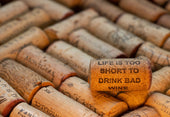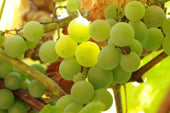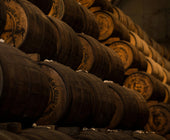
What is Sustainable Wine?

In recent years, the concept of sustainability has gained significant traction across various industries, including the world of wine. As consumers become more conscious about the environmental impact of their choices, sustainable wine has emerged as a popular choice. But what exactly does it mean for a wine to be sustainable?
Exploring Eco-Friendly and Responsible Winemaking
Sustainable wine refers to the production of wine in an environmentally responsible manner. It encompasses practices that prioritize the long-term health of the vineyards, the well-being of workers, and the conservation of natural resources. To be labeled as sustainable, wineries must adhere to specific guidelines and often obtain certification from recognized organizations.
Certification ensures that wineries meet rigorous standards set by various sustainability programs. These programs evaluate key aspects of winemaking, including vineyard management, water conservation, energy efficiency, waste reduction, and social equity. By complying with these standards, wineries demonstrate their commitment to sustainable practices and responsible stewardship of the land.
One such certification program is the Certified California Sustainable Winegrowing (CCSW) program. Developed by the Wine Institute and the California Association of Winegrape Growers, it encompasses a comprehensive set of guidelines for vineyard and winery operations. These guidelines cover areas like soil management, pest control, water quality, energy conservation, and ecosystem management. Wineries that meet the CCSW standards can display the Certified California Sustainable Winegrowing logo on their bottles.
Another notable certification is the Lodi Rules for Sustainable Winegrowing. Established by the Lodi Winegrape Commission, this program focuses on sustainable farming practices specific to the Lodi region in California. It provides guidelines for environmentally friendly vineyard management, including water and soil conservation, biodiversity preservation, and social responsibility.
These certification programs and others like them help consumers identify and support wineries that prioritize sustainability. When you see the certified sustainable wine label, you can feel confident that the wine was produced with a commitment to the environment and social responsibility.
The HVE (Haute Valeur Environnementale) certification, translated as "High Environmental Value," is a French sustainable wine certification that represents a commitment to eco-friendly and responsible vineyard practices. Awarded by the French Ministry of Agriculture, it signifies a winery's dedication to preserving biodiversity, protecting the environment, and minimizing the use of chemical inputs. Wineries with HVE certification prioritize sustainable vineyard management, water conservation, energy efficiency, and the reduction of greenhouse gas emissions. Many of the wines we import from France are HVE certified.
Sustainable winemaking goes beyond just the vineyards. It also extends to the winery operations, where efforts are made to minimize waste, reduce energy consumption, and promote eco-friendly practices. From using renewable energy sources to implementing recycling programs, wineries strive to reduce their carbon footprint and promote sustainability throughout the entire winemaking process.
By choosing sustainable wines, you contribute to a more environmentally conscious wine industry. You support wineries that prioritize the health of the land, minimize their impact on natural resources, and invest in the well-being of their workers. Additionally, sustainable practices often result in higher quality wines, as vineyards and wineries strive for optimal conditions to produce exceptional grapes and wines.
How Else Are We Sustainable?
In addition to importing and selling sustainable wines, we at Plume Ridge Bottle Shop also try to be sustainable by using recyclable and reusable wine shipping boxes and carriers for both local and shipped deliveries. Many wine shippers use styrofoam wine shipping inserts, while we use paper pulp and cardboard inserts, even though it can cost double to triple the cost of styrofoam.
Sustainable wine represents a shift towards responsible and eco-friendly winemaking practices. Certified sustainable wines meet strict standards and demonstrate a commitment to the environment, social equity, and resource conservation. By choosing sustainable wines, you can enjoy a glass of wine with the knowledge that it was produced with care for the planet. So, the next time you explore the wine aisle, consider selecting a bottle of sustainable wine and savor the flavors of a more environmentally conscious choice.
Contributed by Ray Ibanez, E-Commerce Manager for Plume Ridge Bottle Shop.


















































